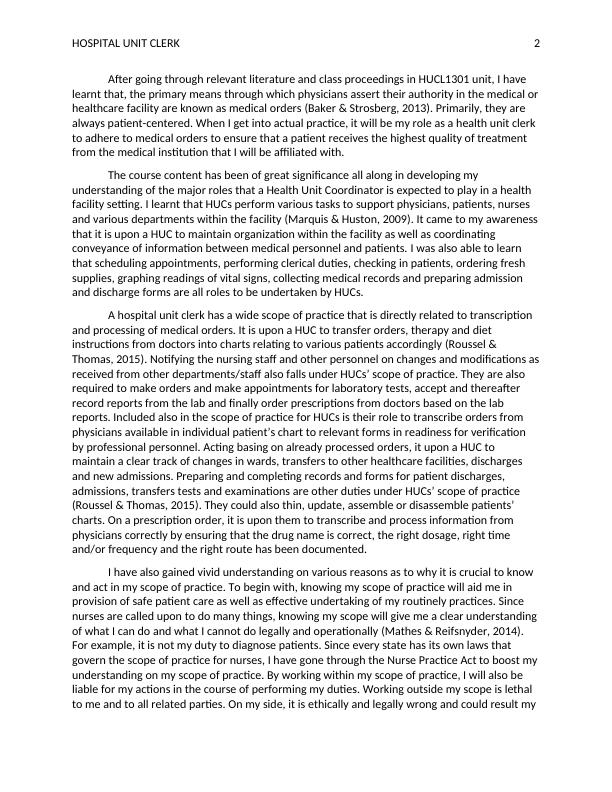Reflective Summary on Hospital Unit Clerk
Provide a self-reflective analysis of what you have learned regarding the scope of practice of a Hospital Unit Clerk and the skills you have gained from this course.
4 Pages1115 Words129 Views
Added on 2023-06-09
About This Document
This reflective summary discusses the roles and responsibilities of a hospital unit clerk, including transcribing and processing medical orders, maintaining organization within the facility, and coordinating communication between medical personnel and patients.
Reflective Summary on Hospital Unit Clerk
Provide a self-reflective analysis of what you have learned regarding the scope of practice of a Hospital Unit Clerk and the skills you have gained from this course.
Added on 2023-06-09
ShareRelated Documents
End of preview
Want to access all the pages? Upload your documents or become a member.
Duties of a Hospital Unit Clerk
|4
|846
|460
Reflection on Fundamental of Medical Order Course
|3
|744
|211
Unit Coordinating Skills
|6
|1817
|54
The Unit Clerk: Job Description, Qualifications, and Duties
|8
|1515
|87
Fundamentals of Medical Orders
|4
|1360
|170
Fundamental of Medical Orders: Role of Hospital Unit Clerk in Record Keeping and Transcription
|6
|1132
|471


